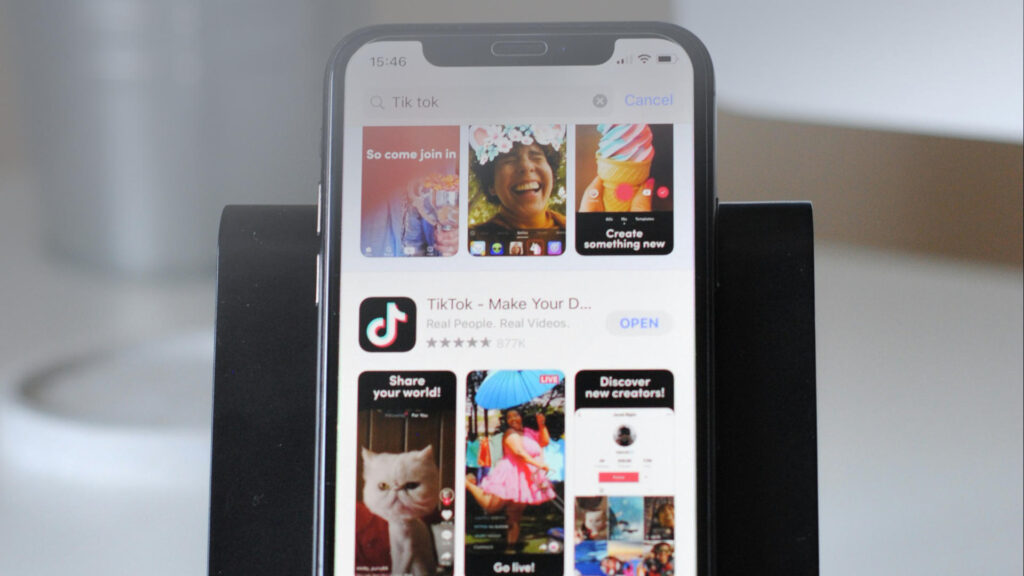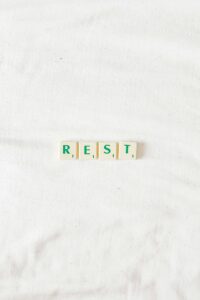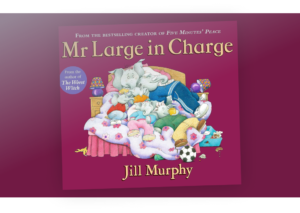I wonder if you asked people to compare the amount of time they spent reading now compared to 15 years ago what sort of shift you would see.
I suspect the trend would be that even for self identified book lovers – the amount of time would have dropped.
There can be a whole number of reasons for this, but a culprit for many will surely be the growing time spent on our mobile devices.
Whilst books can never be replaced, there is a real battle going on to how come books can compete with the device that’s always next to us, the first thing many see in the morning and last thing at night.
As phones have added more features, and new applications are being released that have algorithms specifically designed by big tech to keep our attention so we keep scrolling, it’s harder to put down.
You may feel the word ‘battle’ is an extreme choice of words, but if you were challenged to only use your phone tomorrow to send necessary messages and calls – could you do it?
Many simply underestimate the amount of time spent on their phone, avoiding going into the digital wellbeing section to review their screen time over the last week.
The accessibility of phones
One of the most obvious points about why we’re spending more time on our phones is because they are simply more convenient.
If you want to read a book (unless you carry a kindle around with you everywhere) you have to have that book available and whilst we take our phones out the house, everywhere around with us in the house and even into the bathroom – you don’t tend to carry a book around.
They don’t fit in our pockets and so we keep them in convenient places for us, whether that’s our lounge, our bedside table or maybe our bag if it’s big enough.

The ease of focus needed for phones
You need some sort of attention span to read a book. It might not be long, even toddlers can sit and read The Very Hungry Caterpillar, but it still requires an attention span. You don’t really need an attention span to go on your phone.
You can consume short form content of 8 seconds and find it too long, scrolling down to find something else shorter to inform or entertain you. You can scroll through social media whilst watching TV or chatting with others, playing poor attention to both.
To read a book you need to sit down and focus.
You have to set your attention to that. You can’t read a book and watch TV. It needs your sole attention, and much more than 8 seconds.
The amount of time it takes to get information from a book is longer – it’s meant to be a journey, whether that’s a novel or a textbook.
The information you get from a book is deeper than what you will consume on your phone, even if it’s a one hour podcast – it simply can’t go to the same level of detail into the subject as 400 pages of a book.
The momentary reward of phones
We can get a little rush of dopamine if we get our phones out and spend 5 minutes looking at cute puppies, amusing fail videos or an entertaining YouTube video. We say we’re just having a little break from what we’re doing. We can get quick instant gratification, whether that’s from something wholesome or something darker. As technology allows us to move faster and faster, we hate having to wait for anything now. We want it instantly.
We can feel we’ve connected with someone, even if we’re just seen a photo on Social Media updating people on their relationship status, latest holiday or child’s latest achievement.
When we can’t place that actress from the series, we’re in an argument with someone or we want to find the name of the song – we can quickly open up our phone and reach limitless data that seems to have all the answers to our questions.
It’s much harder to get a dopamine rush, instant gratification, social connection or instant information from reading a book. The benefits are much deeper, but you will have to work for them more.
The excuses to avoiding reading books
So why are we automatically opting for phones instead of books when we have time?
“I don’t have time to read a book”
I catch myself saying this, but then when you look at your daily screen time, it screams ‘liar’ to me. Maybe there were times I went on my phone for a couple of minutes or when I was out of the house, but there are many times I could have picked up a book rather than our phone if we wanted to.
“I’m too tired to read a book”
This was a favorite excuse of mine in the first lockdown. After working all day, I just felt I didn’t have the energy to read a book. Instead, I’d opt for Netflix and scroll on social media. But actually, I felt more drained after doing that. Once I started getting more disciplined and making myself pick up a book instead, I actually felt better in the evenings for it.
“I don’t feel like reading that book right now”
You might be reading a book that you need to be in a certain mood for. Have two or three books on the go, which take different levels of mental concentration and means you’ll be more likely to feel like picking up at least one of them.
“I don’t want to look rude”
Some think having your head in a book looks rude to those around you. Yet if you look around any group of humans now, the chances are most are glued to their phone. Even in a family setting. Reading a book is no less rude than sitting on your phone.

The Benefits of a Book over a Phone
Technology does change our habits and that’s not always a bad thing. Is it an issue that we’re spending less time reading? There are benefits to reading that we’ll miss by only ever picking up our phone.
Allowing time for deep focus
Phones are designed to deliver constant stimulation through notifications, messages and ease of scrolling.
We’re constantly multitasking on our phones and that is leading us to have a more fragmented attention. If you’re reading a book, you have less distractions and the experience is more immersive.
You’re focused on one narrative for an extended period of time.
Importnance of Cognitive engagement
Phones are designed for easy consumption and passive engagement.
We aren’t focusing on things as much anymore. Instead a book forces you to engage your imagination.
You have to follow a narrative which can contain complex ideas or stories and you are focused to visualise it, rather than see it visualised for you on a screen.
This is training our brain to sustain our attention for longer periods of time, which improves our cognitive ability to follow complex ideas.
Mental refreshment
Switching between short form content, notifications, and apps gives us mental fatigue because we’re not meant to multitask.
By letting your brain focus on only one thing, like reading a book, it actually reduces your mental fatigue because the brain is deeply engaged without being overstimulated.
Balance our mental wellbeing
Because instant gratification and constant stimulation provides dopamine hits, we start to lose our ability to focus without those immediate rewards.
Reading a book gives you a much slower sense of reward and that helps your brain train towards longer term gratification which is much more steady, helps us control our emotions and gives us a much more balanced wellbeing.
In summary, reading books strengthens attention by promoting sustained focus, deeper cognitive engagement, and a reduction in distraction.
Phones, on the other hand, often do the opposite by encouraging fragmented attention and immediate gratification.
So why does it matter?
Because reading books are so important for our ability to learn, focus, develop our cognitive engagement and our wellbeing, we need to work harder in this digital age.
Being aware of the battle and why it matters means we can then engage with it and decide what steps each of us chose to make.
The conclusion is not to throw your phone away. That would be missing the point.
The point is a phone is a functional tool you have at your disposal to use to make certain parts of your life easier and efficient.
Review the apps you have on your phone and which are providing you value, and which apps are taking a lot of your time without providing any real benefit to you.
Review how you want to use your phone. Review the books on your bookshelf and remember why you bought them in the first place.
Decide how many books you’d like to read over the next 6 months, and plan how to make picking up a book an easier habit for you by making it more accessible.
Whilst our natural habit will be to reach for our phones, we need to check in with ourselves and say ‘Do I really need to use my phone right now, or could I pick up my book instead’.
Ultimately, if you have taken stock of your recent reading habits and aren’t happy with where you are currently at, the good news is you have the power to change that.
Whilst some hours of the day are accounted for with work, you still have autonomy over the rest and you have the ability to make choices about how they are spent.







